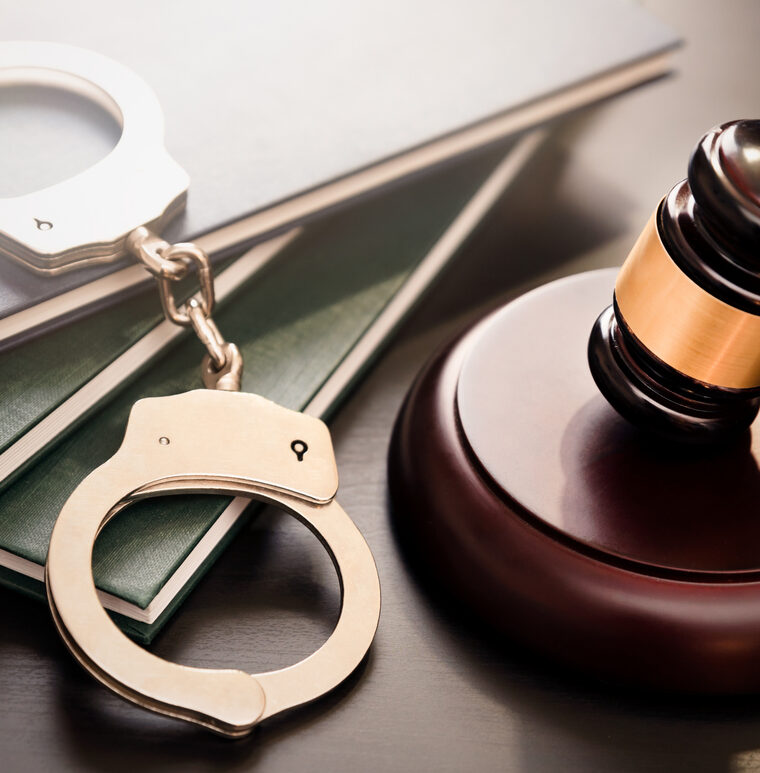
20+
years of experience

100+
5-star reviews

100%
criminal defense
Many people — including those who hold public office, work with charitable organizations, or serve as public employees — are trusted to manage money or property that belongs to someone else. If someone in a position of trust knowingly converts someone else’s money or other property for their own use, they could face criminal charges for embezzlement.
North Carolina is hard on those convicted of embezzlement, even if they have no prior criminal record. If you’re facing such charges, you need an embezzlement lawyer in North Carolina who’s willing and able to stand up for your rights in the courtroom. The team at Hiltzheimer Law Office may be able to help.
What Is Embezzlement NCGS § 14‑90 in North Carolina?
Understanding the charges you’re facing starts with learning North Carolina embezzlement laws. Embezzlement is frequently described as a white-collar crime. It involves taking money or property you have been legally entrusted with and misappropriating it for your own benefit.
For example, suppose that you are the treasurer of an organization, and you’re accused of writing false checks to yourself. That’s an act of embezzlement. Similarly, you could face embezzlement charges if you work at a clothing store and are accused of taking merchandise without paying.

Is Embezzlement a Felony in NC?
Because an embezzlement charge in North Carolina involves a breach of trust and not just theft alone, the state treats it as a serious offense. Under North Carolina embezzlement laws, embezzlement is always a felony charge.
Whether you are charged with a Class H or Class C felony depends on the amount you are accused of embezzling. Stealing money or property worth less than $100,000 is a Class H felony. If the total money or property embezzled is worth $100,000, it rises to a Class C.
Understanding the Difference Between Embezzlement and Larceny
Both embezzlement and larceny involve theft, but there’s a major difference between the two: fraudulent conversion. Embezzlement occurs if the accused obtained assets lawfully through a fiduciary relationship but then unlawfully converted them for his or her own use. Larceny involves stealing money or property you didn’t have legal access to beforehand.

Elements of the Crime of Embezzlement
To convict you of felony embezzlement charges, the prosecution’s case must prove your actions fit these four elements of the crime:
You Had a Fiduciary Relationship With the Victim
In a fiduciary relationship, you’re entrusted with money or property that belongs to another person or organization. You are also obligated to act in the other party’s best interests. This relationship doesn’t have to be formally established to be valid. For example, if you’re a supermarket employee, you have a fiduciary relationship with your employer because you’re entrusted with the store’s merchandise.
You Took Possession of the Money/Property Through That Relationship
For the crime to be classified as embezzlement rather than larceny, the money or property you unlawfully take must have been entrusted to you by the victim.
You Took the Money/Property for Your Own Use or Gave It Away
Embezzlement involves taking the assets you were entrusted with and converting them for your own personal gain or someone else’s.
You Acted Intentionally
Someone who makes a good-faith accounting error isn’t guilty of embezzlement. The state must be able to prove the person accused acted deliberately.
Embezzlement Penalties in North Carolina
Because of the severity of the crime, higher level embezzlement convictions carry a mandatory active prison term.
A Class H felony (embezzling under $100,000) carries a maximum jail sentence of 39 months but is probation eligible in most cases, and a Class C felony (embezzling $100,000 or more) has a maximum sentence of 231 months, with a mandatory minimum prison term that will be determined by your prior record level. North Carolina uses a system called structured sentencing when determining your sentence, whether probationary, or active prison time, or a combination of the two (known as a “split sentence”). This method accounts for both the circumstances of the crime and your prior criminal record.
You may also be ordered to pay restitution or fines. A lawyer for embezzlement charges will be able to assess your case and help you understand the consequences you could be facing.

Strong Defense Strategies for Embezzlement Charges in North Carolina
The embezzlement attorneys here at Hiltzheimer Law Office have represented clients in countless embezzlement cases. There are a number of potential defenses we may develop as we defend your embezzlement case, for example:
- You didn’t actually take the money or property you are accused of taking
- You didn’t intend to take money or property
- You didn’t realize you didn’t have the right to take the property
- You didn’t have a fiduciary duty to the victim
- The evidence against you was obtained illegally
Your specific circumstances will inform the strategy we use. As soon as you get in touch with us, we can start building a strong defense.

Hiltzheimer Law Office: North Carolina Embezzlement Lawyers You Can Trust
While you can’t go back in time and undo your arrest, you can take the next best step: finding a North Carolina embezzlement attorney. At Hiltzheimer Law Office, we understand the substantial impact that a felony conviction — and even just an arrest for serious felony charges — can have on your career, finances, relationships, and reputation.
We firmly believe that it doesn’t matter whether you actually committed the offense in question or not. Regardless, you deserve an attorney who cares about your needs and will fight tirelessly for you both in and out of the courtroom. If you have been arrested on embezzlement charges, don’t wait. The sooner you get in touch, the faster we can get to work building a robust defense. Contact us now for a free consultation.
FAQ
In NC, embezzlement refers to taking money or property you have been legally entrusted with and converting or misappropriating it for your own use. You can be charged with embezzlement regardless of the amount of money (or dollar value of the property) you steal.
If you are accused of embezzling under $100,000 worth of money or property, you can be convicted of a Class H felony and sentenced to up to 39 months in prison, depending on your record. If you embezzle $100,000 or more, you could be convicted of a Class C felony and face up to 231 months in prison.
If you embezzle money from the United States government or a government agency, you could be charged with a federal offense.
Yes. If you are convicted of embezzlement (or any felony aside from a Class A felony), the court must consider your prior criminal record when determining sentencing.

Contact Us Today
Get your free consultation.

Call or Text: (919) 899-9404

Durham Office:
331 W Main St #604 Durham, NC 27701

Raleigh Office:
19 W Hargett St #508 Raleigh, NC 27601

Chapel Hill Office:
605 W Main St #206E, Carrboro, NC 27510

